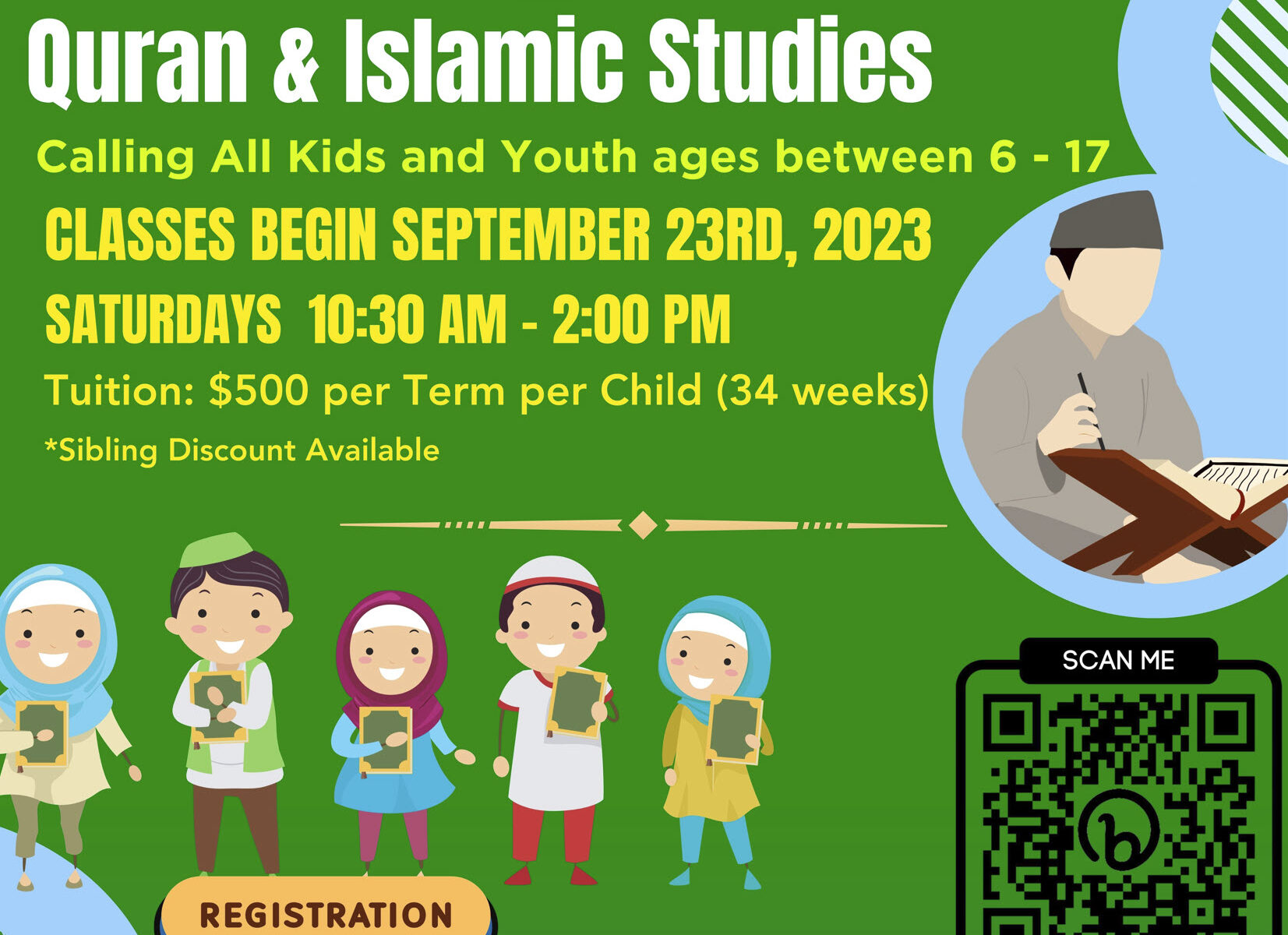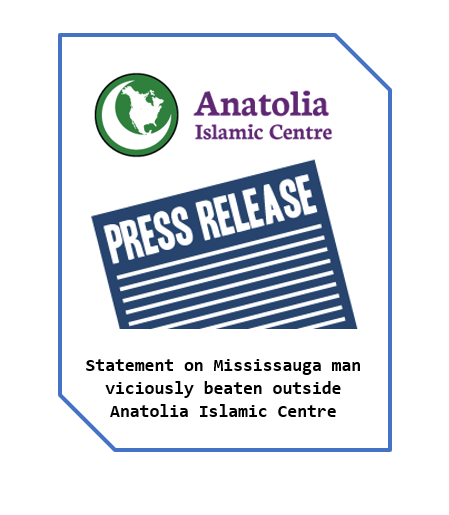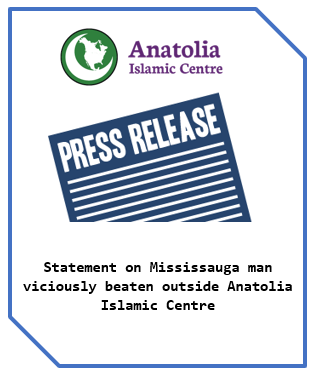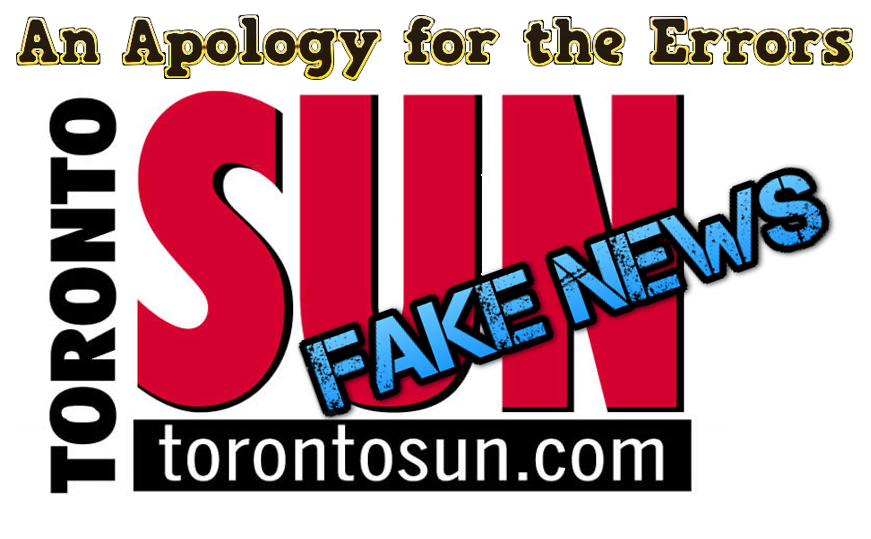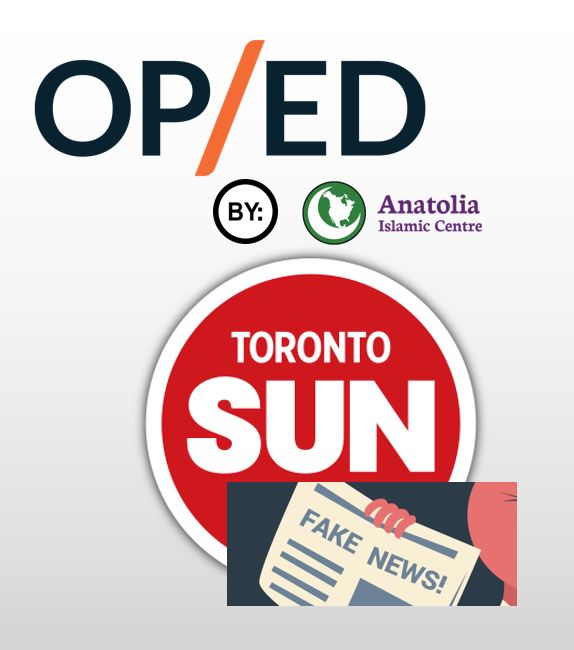
Author: admin
Assalamu Alaikum,
We are excited to announce that The Anatolia Islamic Centre Saturday Islamic School will commence on September 23, 2023.
School Term Length: 34 weeks
START DATE: September 23, 2023
END DATE: June 1, 2024
FEE: $500 per month per child
Please note that we have limited space available, make sure to confirm the attendance at your earliest convenience. If you have any questions, please email us at info@anatoliacentre.ca
AIC Administration
www.anatoliacentre.ca
Registration Link: eventbrite.ca/e/anatolia-saturday-islamic-school-registration-430323528257
UPDATE: Statement on Mississauga man viciously beaten in the vicinity of Anatolia Islamic Centre
Attack occurred on Aimco Boulevard across from Anatolia Islamic Centre
Anatolia Islamic Centre was saddened to learn that one of our congregants was physically attacked in the vicinity of our centre while on his way to attend prayers. As a result of the attack, our brother of Syrian background was rendered unconscious and subsequently hospitalized with fractures and severe injuries. He is now home and we pray for our dear brother’s speedy recovery and hope to see him amongst us soon.
As a result of this road rage incident, on May 27, 2019, Roberto Arevalo, a 37-year-old-man from Toronto, was arrested for Assault Cause Bodily Harm and will attend the Ontario Court of Justice in Brampton on a later date.
Anatolia Islamic Centre administration wishes to extend its gratitude to Peel Regional Police for their prompt response, support and professional service.
Peel Regional Police is requesting that anyone with information in relation to this incident should contact investigators at 12 Division Criminal Investigation Bureau at 905-453-2121, ext. 1233. Anonymous information may also be submitted by calling Peel Crime Stoppers at 1-800-222-TIPS (8477) or by visiting peelcrimestoppers.ca.
Anatolia Islamic Centre is a leading Muslim organization serving the needs of Canadian Muslims since 1998.
An Apology from the Toronto Sun
Correction by The Toronto Sun
The Toronto Sun has published an apology for the untrue and biased comments made by their columnist, Candice Malcolm about our centre and our Imam. Detailed information about the article and the apology can be found here. Below is the apology that was published on the Toronto Sun newspapers on October 28, 2018 on page 4, in the below left section.
“A Friday May 4 column by Candice Malcolm published in the Toronto Sun detailed controversy over Canada Summer Jobs grants and while quoting controversial past statements by the by the centre’s Imam wrongly suggested the Anatolia Islamic Centre itself had a history of supporting anti-gay comments. In a subsequent column, Malcolm wrongly suggested the Anatolia Islamic Centre had a history of supporting terror groups which is untrue. The Sun Regrets the errors.”
For more information click here .
– Anatolia Islamic Centre
OP-ED: Recklessness with truth has dire consequences for targeted minorities
Op-Ed from the ICMG Anatolia Islamic Centre
Fatiha
Verse 68:32
We trust our Lord will give us a better garden than this, for we are indeed turning to our Lord with hope.” (Quran 68:32)
Verse 47:2
As for those who believe, do good, and have faith in what has been revealed to Muḥammad—which is the truth from their Lord—He will absolve them of their sins and improve their condition.
(Quran 47:2)
Can I get a tax receipt?
ICMG Anatolia Islamic Centre is a registered Canadian charitable organization and our organization will be happy to issue a tax receipt to you if you provide the following:
- Your full name
- Your address
- (Optional) your phone and email.
We do our best to issue tax receipts at the second half of February of the year to follow your donation.
If you donated to AIC but didn’t receive your receipt, or if you are moving to a new address and want your receipt sent there, please contact us at donationreceipts@anatoliacentre.ca.
Alternatively, you can use our contact form and provide your details so we can help you. Please click on “Donations and Tax Receipts” under the heading Type of Request in the contact form so that your message will be sent to the right person.
When will I get my donation tax receipt?
We do our best to issue tax receipts by the end of February of the year to follow your donation. If you need it before that date, please contact us or send an email to donationreceipts@anatoliacentre.ca


